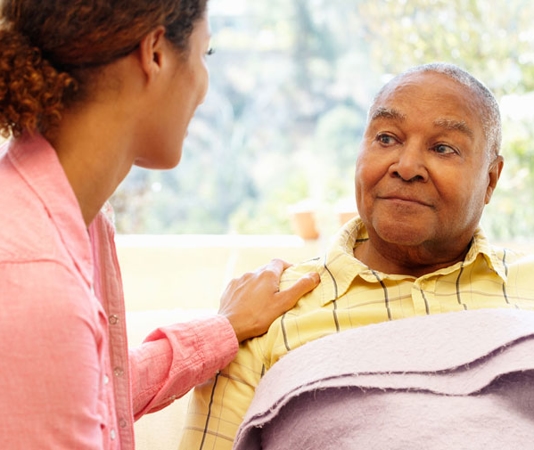The Dementia Action Alliance is a non-profit dedicated to, among other things, helping people who are living with dementia live their best life. This includes educating the public about stigma and misperceptions about this disease.
We recently conducted a Q & A with Jackie Pinkowitz, board chair for the Dementia Action Alliance.
Q: Part of the mission of the DAA is to end dementia stigma. Can you share what the stigma of dementia is?
A: I want to refer you and your readers to a white paper, “Living with Dementia: Changing the Status Quote” which includes a great deal of information on this topic. The purpose of this report was to address the failure of many healthcare practitioners and settings to address the needs of people living with dementia as well as the societal factors that contribute to undermining their well-being. I will be referencing this white paper in some of my answers.
When diagnosed with dementia, people’s feelings, actions, and expressions often become reduced to symptoms. A process of dehumanization can occur that regards them as “stages of disease and deficit.” Neurologists provide a diagnosis and may say, “Go home and put your affairs in order” as if they are facing the end of their lives. They are often ostracized from their community and past friends often ignore them.
Q: What are some small, every day things someone can do to help reduce stigma or misperceptions about dementia?
A: What is needed is an understanding of the holistic bio-psycho-social-spiritual dimensions that best support well-being. After a person receives a diagnosis, what he or she needs is information about how to live with the emotional and physical aspects of the condition and to maintain their strong social and emotional support from family and friends (who also need such information).
Everyone can help reduce stigma by including those living with dementia in their community as a friend and neighbor; to show others that “you see beyond the label” and get to know what that family member or neighbor or friend likes to do and become a friend who invites him or her to your house; your church or synagogue; to take a walk in the park or listen to music. Be a friend and get to know what makes them feel good.
Q: DAA also talks about a focus on well-being. What does that look like for the person living with dementia and their caregiver?
A: For those living with dementia: More and more people in the early and mid-stages of dementia are openly writing and talking about their experiences of living well with dementia. There is an amazing network of people living with dementia who are using social media and online meeting rooms to come together virtually to share their thoughts and feelings on many different topics. They create friendship communities that spread across the globe.
Their well-being is achieved through reciprocal and respectful relationships that:
- Value autonomy, choice, comfort & dignity
- Focus on their strengths & abilities
- Enable opportunities for continuation of normalcy & growth of self
- Enhance individual purpose, meaning, enjoyment and belonging.
For care partners: The term “caregiver” implies an uneven relationship. The term Care Partner best describes the reciprocal & respectful relationship those living with dementia symptoms want.
For both those living with dementia and their care partners: The most helpful approach would be viewing dementia as a disability and viewing those living with dementia as “differently abled”. A differently-abled perspective is oriented to well-being and to making adaptations that support living as fully as possible. Dementia defines only one aspect of a person’s humanness.
Q: Do you have suggestions for how to engage with someone who is living with dementia?
A: Be positive, proactive, and resilient. Do you not use stigmatizing language, and instead use an individualized approach.
The DAA recommends using the person-centered phrase, “individualized approaches” which focused on a comprehensive understanding of the individual and their condition, the building of strong relationships, compassions and having a mindset of trial and error to determine the best courses of action.
As Maya Angelou so wisely wrote, “Do the best you can until you know better.”
Q: How can people connect with the DAA to learn more in their community?
A: Anyone with questions about DAA or regarding how to live well with dementia is encouraged to go to the “Contact Us” page of our website and reach out via phone or email.



.1803151925550.jpg)

